Life with KS: The voice of Daniel Hellinger
Daniel Hellinger is a 30-year-old man with mosaic Klinefelter syndrome/KS, living in Seattle, Washington. Diagnosed with 47, XXY in his early twenties, Daniel described what it was like to grow up knowing something was always just a bit off, and what it felt like to discover the answer.
Childhood:
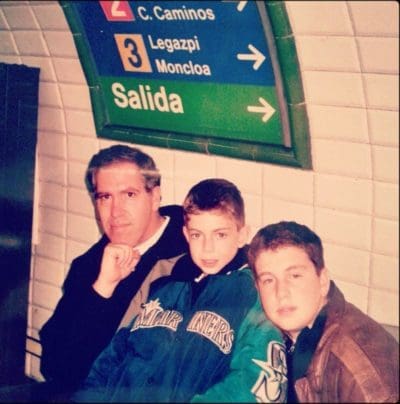 Growing up with his younger brother, Daniel’s family was close-knit, with his parents still happily married to this day. Their large family includes aunts, uncles, and cousins, all of whom were supportive of one another.
Growing up with his younger brother, Daniel’s family was close-knit, with his parents still happily married to this day. Their large family includes aunts, uncles, and cousins, all of whom were supportive of one another.
In elementary school, Daniel felt “like everybody else.” He was skinny and shy, particularly around girls. He started playing baseball at age three and was always involved in a sports team, through which he made lasting friendships. He was “a normal kid, and nothing was ever truly out of the ordinary.”
When Daniel reached puberty, it was the “exact opposite” of what he expected. At age 13, he suddenly gained a lot of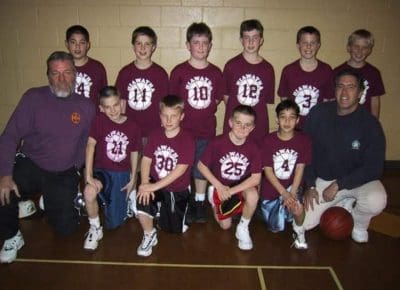 weight, some of which he attributed to unhealthy eating habits. Daniel experienced mood swings, and was “always angry.” He existed in a state of extreme fatigue, and frequently fell asleep in class. He “tried his best,” but by high school was drinking coffee to help stay awake in class. Additionally, he was overweight, and had no energy, which caused his self-esteem to plummet. As high school came along, he found it difficult to make friends.
weight, some of which he attributed to unhealthy eating habits. Daniel experienced mood swings, and was “always angry.” He existed in a state of extreme fatigue, and frequently fell asleep in class. He “tried his best,” but by high school was drinking coffee to help stay awake in class. Additionally, he was overweight, and had no energy, which caused his self-esteem to plummet. As high school came along, he found it difficult to make friends.
Before high school, Daniel was always busy and “got things done.” However, as he came into his teenage years, school became harder. Math and science went over his head, while he continued to do well with writing. By middle school, it was taking him two or three times longer than his classmates to get through assignments, and he struggled to understand what others seemed to catch onto quickly. In retrospect, he realized part of these struggles was because he didn’t understand how to most effectively study or take notes to help increase his comprehension of the material.
High school:
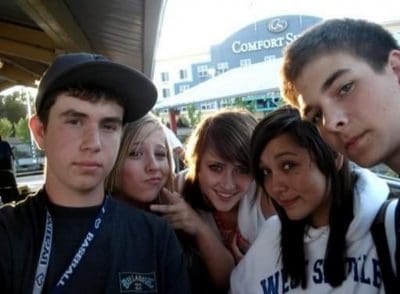 Even though by high school Daniel realized there was “something wrong,” he didn’t receive any extra academic help. At times he felt “stupid”, but he still got good grades in the majority of his classes. He continued to play baseball, and his group of friends helped him to muddle through the trickier academic subjects. Like Daniel, his friends realized “something was up”, but helped him get through the tough courses, like math and science. He dated a girl who, like him, preferred quiet and smaller groups as opposed to larger crowds.
Even though by high school Daniel realized there was “something wrong,” he didn’t receive any extra academic help. At times he felt “stupid”, but he still got good grades in the majority of his classes. He continued to play baseball, and his group of friends helped him to muddle through the trickier academic subjects. Like Daniel, his friends realized “something was up”, but helped him get through the tough courses, like math and science. He dated a girl who, like him, preferred quiet and smaller groups as opposed to larger crowds.
While initially a bit shy, baseball helped Daniel come out of his shell. He started off his freshman and sophomore years on the junior varsity team, earning his way onto the varsity team at the end of sophomore year. Baseball was the most popular sport at his school, and his inclusion on the team increased his social standing. Daniel put his focus into honing his baseball skills in the hopes of earning his way onto a college team. However, even though he worked as hard as his peers, he was lacking the quickness, agility, and strength needed to progress in the sport.
College:
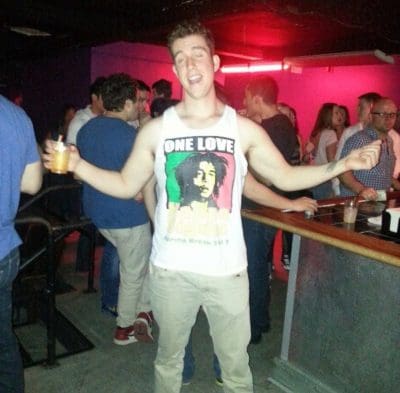 After being accepted into two of three schools he applied to, Daniel settled on Linfield College in McMinnville, Oregon. Since he hated flying, he wanted to go to school as far away as he could without having to get on an airplane. His mother had gone to the small, close-knit college of 1,700 students, and he found her stories about collegiate life to be what he was looking for. While he didn’t make the baseball team, he ended up throwing the javelin at the college for three years, which allowed him to continue playing sports competitively.
After being accepted into two of three schools he applied to, Daniel settled on Linfield College in McMinnville, Oregon. Since he hated flying, he wanted to go to school as far away as he could without having to get on an airplane. His mother had gone to the small, close-knit college of 1,700 students, and he found her stories about collegiate life to be what he was looking for. While he didn’t make the baseball team, he ended up throwing the javelin at the college for three years, which allowed him to continue playing sports competitively.
After joining a fraternity, Daniel came out of his shell and became more social. Having a “little brother” from Nepal to mentor in the fraternity encouraged him to interact with people from other cultures and countries, helping him gain better socialization skills. Throughout college, Daniel dated, and had a couple of steady girlfriends. He worked summer jobs focused on helping underprivileged kids, and participated in various internships. 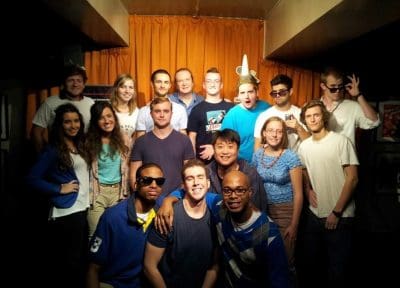
However, there were struggles as well. Following an accident at his fraternity house that resulted in a lengthy hospital stay, Daniel plunged into depression. Experiencing new feelings of anxiety, and stress, he was supported by his friends and mother. As time has gone on, Daniel’s been able to manage his stress and anxiety, even in the face of daily life stressors. College coursework proved challenging, which drove Daniel into the degree path he ultimately ended up graduating from. Worried he couldn’t make it through harder courses, he sought out coursework that wouldn’t require testing, as he didn’t have the self-confidence to believe he could succeed.
Daniel graduated from college in four and a half years with a degree in creative advertising, and mass communications. He studied abroad in Hong Kong over the fall semester of his senior year in 2012, met people from all over the world, and developed life-long friendships. After graduating in 2013, he returned home to Seattle.
Diagnosis:
 As a new college grad, Daniel explored his career options. Following an internship with the baseball team, the Mariners, he accepted a position working in their warehouse. Around this time, Daniel realized he wanted to travel and see more of the world. In order to fund his wanderlust, he picked up shifts as a rideshare driver, and worked as a delivery man. After working for a year and saving every bit he could, he was ready to start planning his grand adventure. However, he was about to get a bigger surprise than anyone was expecting.
As a new college grad, Daniel explored his career options. Following an internship with the baseball team, the Mariners, he accepted a position working in their warehouse. Around this time, Daniel realized he wanted to travel and see more of the world. In order to fund his wanderlust, he picked up shifts as a rideshare driver, and worked as a delivery man. After working for a year and saving every bit he could, he was ready to start planning his grand adventure. However, he was about to get a bigger surprise than anyone was expecting.
When he was 24 years old, Daniel was diagnosed with Klinefelter syndrome/KS, or 47, XXY. As he was preparing to start a solo travel trip to India, he made an appointment with the doctor to get malaria pills. His primary care doctor wasn’t available, so Daniel saw a new provider, who recommended a physical before he headed abroad. During the exam, the doctor noticed Daniel had small testicles, and mentioned he wanted to follow up on this finding.
A wrongly sent email:
Unable to sleep late one night, Daniel checked his emails. He was shocked when he found the new provider had sent an email meant for Daniel’s primary care doctor. The email stated that Daniel had Klinefelter syndrome. Daniel had never heard of Klinefelter syndrome before, and upon looking it up his “world just dropped.” He recalled thinking “what the hell is this?” Even though Daniel had felt like he wasn’t “normal like other people”, he still felt as though a bomb had gone off. 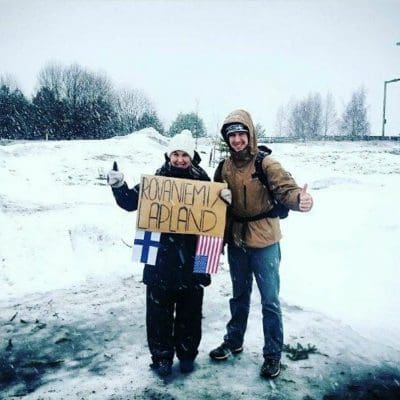
Terrified of what he’d learned, Daniel sat on the diagnosis for a couple of weeks, trying to make sense of it all and to cope with the newfound knowledge. He knew his testicles were a bit smaller than other guys, and he’d also developed some harder breast tissue when he was younger. He found it harder than his peers to lose weight, even when working out hard. Deep down, he knew something was different, but until he got that email, he didn’t know what that difference was.
The doctor referred Daniel to an endocrinologist. With the trip still approaching, Daniel had lots of questions he needed answered. He asked what would happen to him, what he needed for medication, and if he could bring it on the trip. At the appointment, the endocrinologist told Daniel he had mosaic Klinefelter syndrome.
The endocrinologist informed Daniel he’d never had a patient like him before, describing the Y chromosome as “literally hanging from a thread on one of the Xs.” As a result, Daniel has “certain parts” of Klinefelter syndrome, but not all of the symptoms. As he was the only patient with this diagnosis the doctor had seen in 20 years of practice, Daniel did a lot of his own research about his syndrome. He learned while he does have KS, it’s “a very rare form of KS. He felt very alone, and didn’t know how to talk to anyone about what he’d discovered.
Sharing the KS diagnosis:
 Eventually, Daniel confided the diagnosis in his brother. He felt more comfortable telling his brother than his parents, as he was still working through the realization he might not be able to have biological children. Daniel feared letting his parents down, as he knew they wanted grandchildren, even though he wasn’t sure he wanted kids. Though telling them was “really hard,” when Daniel did they were “fine with it.” Daniel’s parents said, “shit happens,” and were relieved it wasn’t a life-threatening condition. They were accepting of the diagnosis, and supportive of Daniel, which was a great relief to him. His parents check in, and ask questions. He felt if his parents could accept him, then other people would, too.
Eventually, Daniel confided the diagnosis in his brother. He felt more comfortable telling his brother than his parents, as he was still working through the realization he might not be able to have biological children. Daniel feared letting his parents down, as he knew they wanted grandchildren, even though he wasn’t sure he wanted kids. Though telling them was “really hard,” when Daniel did they were “fine with it.” Daniel’s parents said, “shit happens,” and were relieved it wasn’t a life-threatening condition. They were accepting of the diagnosis, and supportive of Daniel, which was a great relief to him. His parents check in, and ask questions. He felt if his parents could accept him, then other people would, too.
For Daniel, there was also a sense of relief in learning about the diagnosis. After a lifetime of wondering why things frequently felt off, now he knew why that was. He’d been searching for understanding about why he felt the way he did. He has a better understanding of what he’s gone through in his life, and “can cope with that.”
While he’s in a good place now of understanding and acceptance for who he is, Daniel said it’s not something that happened overnight. It took him a year or two after the diagnosis to come to terms with it, and about six years for him to accept his identity. He’s proud of his accomplishments, and is confident. When he’s dating someone and getting serious, he has no qualms about letting them know who he is, and what he wants out of life. Some of his best skills include listening and connecting with people.
Treatment:
 After the diagnosis, Daniel went on his planned year of travel. He couldn’t immediately start on testosterone. Once started, he took six months of treatment with him, and then returned to the United States to resupply. While in Uganda, he was able to have his testosterone mailed to him from Washington D.C.
After the diagnosis, Daniel went on his planned year of travel. He couldn’t immediately start on testosterone. Once started, he took six months of treatment with him, and then returned to the United States to resupply. While in Uganda, he was able to have his testosterone mailed to him from Washington D.C.
Starting the treatment was a bit tricky at first, as Daniel had a fear of needles. On occasion, he needed help to get the injection done. He would ask his girlfriend, brother, or parents. The injection was one of “the worst parts of his week”. Over time, he began developing scar tissue from the injections. The treatment wasn’t working as well as it could. He switched to gel and applied two pumps to the shoulder at the same time daily. He has to wait five hours after applying the gel to get into the shower. While the gel is expensive, Daniel was able to have it paid for by the state, as he was out of work at the time of his interview.
Daniel has been on testosterone replacement therapy for about four and a half years. Before starting testosterone, he frequently felt angry, depressed, anxious, and slept a lot. He reported feeling happier and focuses on maintaining good health. He eats clean and works out a lot. While he did experience gynecomastia in his chest and stomach, corrective surgery “helped his confidence a lot.” He feels as though it was mostly noticeable to himself, as opposed to others noticing it. Overall, he feels normal in comparison to his other friends. Daniel’s “just one of the guys,” something he never felt before being on testosterone.
Living With XXY:
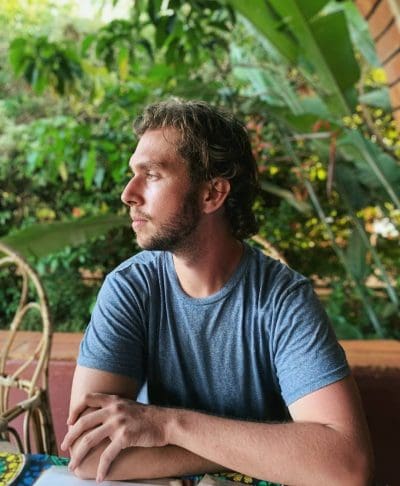 As of March 2021, Daniel was waiting on a security clearance to come through so he could start his new job. Since starting with his study abroad in Hong Kong in 2012, Daniel has visited over 73 countries. He also served in the Peace Corps, returning to the United States at the onset of the COVID-19 pandemic. Daniel joined the Peace Corps to learn to be ok on his own. He also wanted to learn more about himself. Even though he has KS, he felt it’s important to note that it’s possible to overcome challenges. He wanted others to know that KS shouldn’t “shouldn’t hold anyone back from pursuing something bigger than themselves.” He’s now hanging out in Seattle, and traveling in Europe.
As of March 2021, Daniel was waiting on a security clearance to come through so he could start his new job. Since starting with his study abroad in Hong Kong in 2012, Daniel has visited over 73 countries. He also served in the Peace Corps, returning to the United States at the onset of the COVID-19 pandemic. Daniel joined the Peace Corps to learn to be ok on his own. He also wanted to learn more about himself. Even though he has KS, he felt it’s important to note that it’s possible to overcome challenges. He wanted others to know that KS shouldn’t “shouldn’t hold anyone back from pursuing something bigger than themselves.” He’s now hanging out in Seattle, and traveling in Europe.
When asked why he wanted to share his story, Daniel said when he found out about the diagnosis at 24 he felt “so alone”. He wants to provide support to others finding out about their diagnosis, so they can understand that what’s happening to them is normal.
Even though there are times when he feels having KS sucks, Daniel wants others to know that they aren’t alone. While there are times he wishes he didn’t have it, Daniel also remarked that men with KS are “resilient”. Daniel believes there are many positives that come with KS as well. For example, he’s very easy to talk to, and a good listener. He’s great at expressing himself, and women have said they feel safe with him, as he’s easy to talk to. Daniel’s focus is on learning more about who he is, and less on what other people expect. His advice to others with KS is to not care what others think, and instead to live for yourself. You can contact Daniel on his Facebook.
By Chelsea Castonguay
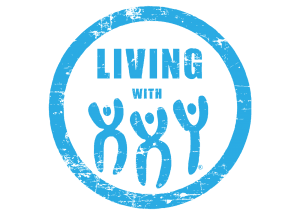


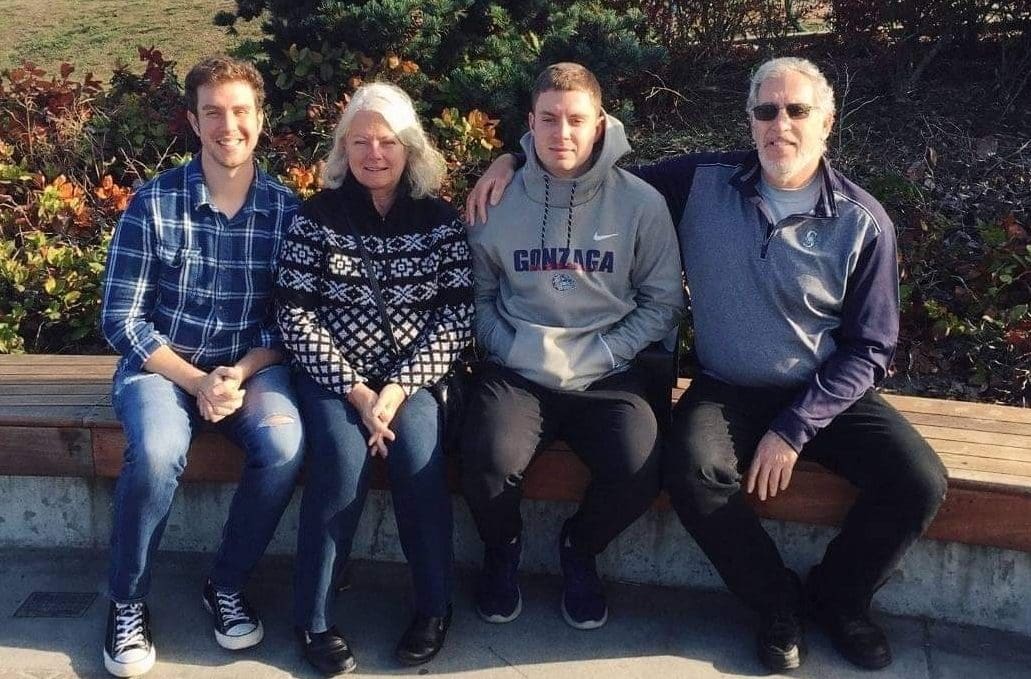
Leave A Comment